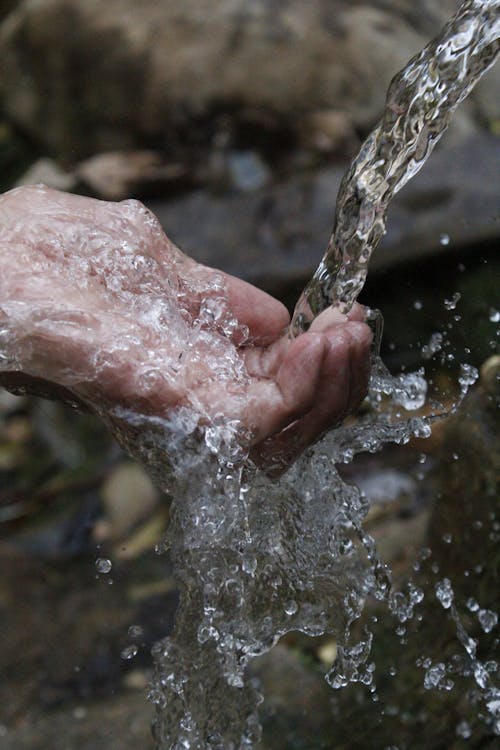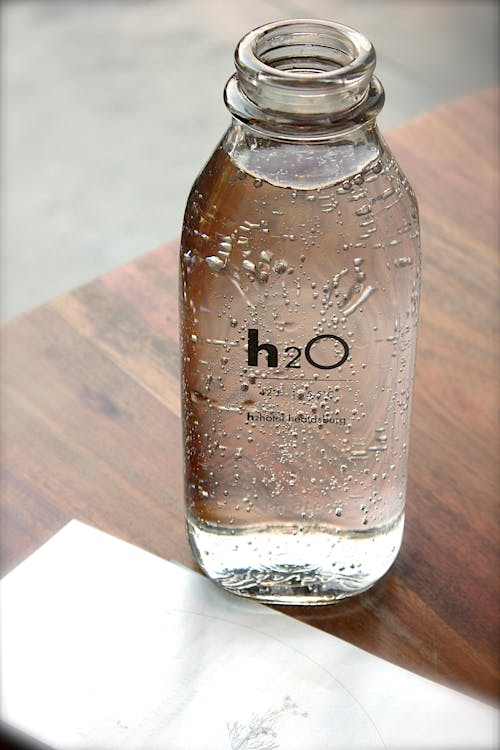
If you’re a human being reading this – And I’m pretty sure you are, then your made mostly of water. In fact, up to 60% of your adult body is composed of water. Your brain and heart are composed of 73% water, and the lungs are about 83% water. The skin contains 64% water, muscles and kidneys are 79%, and even the bones are watery: 31%. Knowing that, it’s easy to see why this vital liquid is so important to your health, but let’s dive a little deeper (pun very much intended) and learn why it’s so important to our health to stay properly hydrated and what does that even mean?
So why is staying hydrated so important?

Staying hydrated is critical to every cell, tissue, muscle and organ in your body – including your heart and brain. Water carries nutrients to your cells, and helps your body regulate temperature, it removes waste and lubricates your joints. It helps rid your skin of toxins, maintains proper electrolyte balance in your muscles (essential for building muscle mass), increases blood flow and oxygen to your brain and helps your heart pump blood more easily.
Water also aids in digestion from start to finish. Digestion begins with the saliva in your mouth. This water based fluid provides the ideal environment for the digestive enzymes that begin the breakdown of foods into the chemical compounds that every part of your body uses in various ways. Its also mandatory to help your body break down soluble fiber to produce soft, easy to pass stools.
Your body constantly loses fluids through a variety of ways. Whether sweating from activity, passing waste or vomiting and diarrhea from sickness, these fluids need to be replenished to avoid dehydration, and water is the single best way to re-hydrate.
Second to oxygen, water is the most important element you provide to your body.
So how do you know when you’re dehydrated?

The simplest way to know if you’re dehydrated is to listen to your body. If you’re thirsty, that’s your body telling you it needs water. if you ignore this feeling, then you’re on the path to dehydration. Dehydration has several stages progressing from simply annoying to serious. At the onset of dehydration you’ll likely feel thirsty and tired and might develop a mild headache. Further dehydration will see you becoming angry and moody, followed by mental and physical decline as dehydration begins causing a strain on your heart.
The good news is you can re-hydrate fairly quickly. According to a study performed by the Journal of Strength and Conditioning Research you can re-hydrate from mildly dehydrated to fully hydrated in just 45 minutes by consuming just 600ml of water (a little more than a standard bottle of water).
Some signs of severe dehydration:
- Little or no urine.
- Urine that is darker than usual
- Extreme dry mouth
- Sleepiness or fatigue
- Extreme thirst
- Headache
- Confusion
- Dizziness or lightheadedness
- No tears when crying
If experiencing any of the above (or observing these symptoms in another), it’s well past time to just grab a bottle or two of water, it’s time to seek medical treatment!
So what is “properly hydrated” and how much should you drink to get there?

There are a lot of answers to this question, and the correct answer probably has something to do with your age, gender, climate and weight, but the generally accepted answer is called the “8 x 8 rule”. It’s pretty easy to remember – you should be consuming at least 8 – 8 ounce servings per day for a total of 64 ounces (around 2 liters) – but not all at once. This is a decent rule of thumb for the average person, but if you’re participating in any form of strenuous activity, or are in a warm environment (or both!) then you want to make sure to hydrate even more to replenish fluids lost. The same rule applies if you’re sick and vomiting, or experiencing diarrhea. Pregnancy can also affect your water needs, so if you’re pregnant, be sure to talk to your doctor about your body – and your baby’s needs!
Try to start and end your day with a glass of water. Have at least one with each meal – for those keeping track, that would give you 5 of your 8 servings of water if you’re following the 8×8 rule. Space the other three out in between meals, or whenever your feeling thirsty.
And the best way to hydrate? Generally speaking, water is your beverage of choice for hydration. Sports drinks or electrolyte fortified waters can be good options when you’re exercising, as they can replace electrolytes which are also lost through sweat. But watch out for high amounts of sugar that are often hidden in these beverages. Avoid alcoholic beverages – which can actually dehydrate you.
A few tips on staying hydrated
So you’ve learned a lot today about hydration, below are some tips on staying hydrated:

- Bring water with you. Throw a few bottles of water in the glove box of your car so you have them on hand anywhere you go.
- Add lemon or lime to water for taste. It may be easier to keep a pitcher of water in your fridge and throw a few slices of lemon or lime in it and then fill your water bottle from it.
- Drink before, during and after working out. I try to consume a bottle of water before any workout, and another during / after my workouts to replenish any lost fluids.
- If spending lots of time in the sun (on a boat, or at a sporting event outdoors etc.), drink plenty of water to replace lost fluids. Stick with water or sports drinks.
- If drinking alcohol, follow the “one for one”rule. Drink 8 ounces of water for each alcoholic beverage you consume. This will help keep you hydrated, and can also help you avoid a nasty hangover if you overdo it!
Resources
UPMC Health Beat – The importance of hydration for your heart
2 thoughts on “The Hydration Equation. The Importance Of Staying Properly Hydrated.”